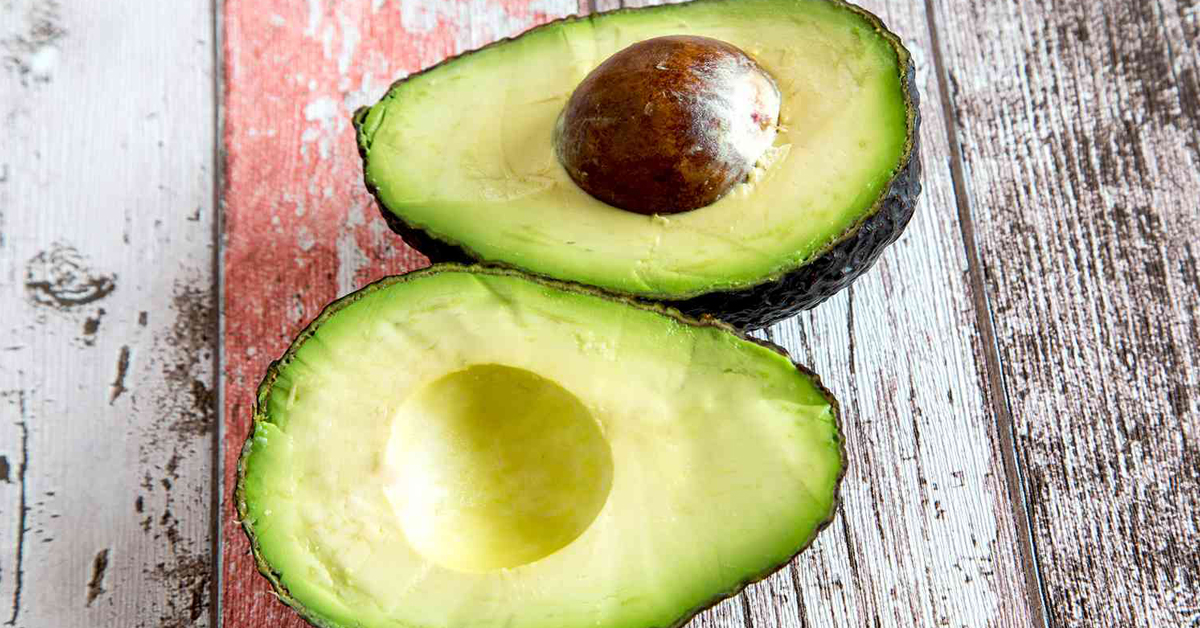Navigating the golden years can be just as vibrant and fulfilling as any other stage of life, but it often comes with a unique set of health challenges. From the pesky back pain that sneaks up after a garden tending session to the joint discomfort that seems to forecast the weather better than the local meteorologist, seniors are often in search of gentle yet effective ways to ease their discomfort. Fortunately, Mother Nature has tucked away a treasure trove of remedies that remain largely under the radar. In this enlightening journey, we’ll uncover 15 natural approaches and wellness practices that may help soothe, rejuvenate, and restore. Whether it’s the potential anti-inflammatory properties of certain foods or the gut-nourishing power of others, these natural remedies are worth considering for your wellness routine.
1. Eat Walnuts & An Apple For Headaches

The next time you feel a headache coming on, the first thing you should do is drink a glass or two of water. Dehydration is a common trigger for headaches, so proper hydration might help relieve your discomfort right away. But the very next thing worth trying is a handful of walnuts and an apple.
This simple snack provides a balanced combination of carbs, protein, and healthy fat that may help stabilize blood sugar levels – a factor that can sometimes contribute to headache frequency for many people. The omega-3 fatty acids in walnuts and natural compounds in apples might also support a healthy inflammatory response.
2. Collagen For Knee & Back Pain

Are creaky knees and an achy back slowing you down? You might have just found your secret weapon: NativePath Collagen. This thoughtfully formulated supplement provides key building blocks your body uses to support joint and connective tissue health as you age. Imagine moving through your day with greater comfort as you climb stairs or tend to your garden. With NativePath Collagen, you’re supporting your body’s natural maintenance processes. Perfect for anyone looking to maintain mobility and embrace every movement with confidence.
3. Calm Nausea With Ginger

Ginger has been studied extensively for its potential to support digestive comfort. A 2016 review of research, published in the journal Integrative Medicine Insights, examined ginger’s effects on various types of nausea, with encouraging observations. It appears to work by helping food move through the stomach more efficiently and may interact with certain neurotransmitter receptors involved in nausea signaling.
To make yourself some ginger tea, steep 1½ teaspoons of freshly grated ginger in 1½ cups of boiling water (add honey if you like). Let it sit for 10 minutes, then strain the ginger out before drinking. Many people find this simple approach both soothing and pleasant.
4. Eat Two Kiwis Before Bedtime To Support Sleep

Some people suggest sipping warm milk before bed because it contains tryptophan, an amino acid that converts to serotonin, which may help you relax, and melatonin, which plays a role in sleep regulation. However, research on milk’s sleep benefits has been mixed.
For a fruit-based alternative, consider trying two kiwis about an hour before bedtime. A 2016 review in Advances in Nutrition noted that this fruit might support healthy sleep patterns due to its rich folate content, a B vitamin that appears to be involved in sleep-related brain chemistry. Many people report positive experiences with this simple approach to bedtime nutrition.
5. Support Healthy Blood Sugar & Metabolism With Berberine

Berberine has been valued in Chinese and Ayurvedic wellness traditions for thousands of years. This plant compound works in the body through multiple pathways and may influence various cellular processes.
Research on berberine has shown promising results for supporting metabolic health, including healthy blood sugar levels, cholesterol management, and cardiovascular function. Some studies suggest it may also support digestive wellness.
While research continues, several studies have observed that berberine may help support healthy weight management when combined with proper diet and exercise. The growing body of evidence suggests berberine might be a valuable addition to a wellness routine, particularly for those interested in maintaining metabolic health as they age.
You can learn more about Berberine by clicking the link below.
6. Chew Sugarless Gum For Heartburn

The typical dietary advice for managing occasional heartburn includes eating smaller, more frequent meals, being mindful of spicy foods, and avoiding eating or drinking within 3 to 4 hours of bedtime.
Another approach worth considering: Chew sugarless gum after meals. Studies have observed that this simple habit may help support digestive comfort by stimulating saliva production, which contains natural bicarbonate. The increased saliva flow may help neutralize stomach acid, while the chewing action appears to support normal digestive processes.
7. Avoid Sugars When You Have A Cold

When you’re feeling under the weather, being mindful of sugar intake might be worth considering. Some research suggests that sugar consumption may temporarily influence certain immune functions, potentially affecting your body’s natural response to seasonal challenges.
During times when your immune system is working hard, focusing on nutrient-dense foods makes good sense. Many traditional wellness approaches, like warm chicken soup, may provide both comfort and nutritional support when you’re not feeling your best.
8. Eat Cherries For Joint Comfort

Tart cherries aren’t just for pies – they’re gaining attention for their potential role in supporting joint comfort, particularly for those with occasional flare-ups in the big toe joint. Tart cherries contain compounds called anthocyanins that may help support a healthy inflammatory response and normal uric acid metabolism. These delicious fruits contain natural antioxidants that appear to promote overall joint health.
Several studies have examined the relationship between cherry consumption and joint comfort, with encouraging observations. For those interested in this approach, drinking 8 ounces of pure tart cherry juice or taking one tablespoon of cherry extract twice daily might be worth considering. Just make sure to choose 100% pure tart cherry products without added sugar for optimal nutritional value.
9. Drink Cranberry Juice For Urinary Tract Health

Urinary tract health is a common concern for many seniors, especially women. Maintaining comfort and normal function in this area can significantly impact quality of life. Cranberry juice has long been suggested as a traditional approach to supporting urinary wellness, and research is beginning to explore the science behind this tradition.
Cranberries contain unique compounds called proanthocyanidins (PACs) that appear to influence how certain bacteria interact with the urinary tract lining. These compounds may help support a healthy urinary environment by promoting normal bacterial balance. Several studies have examined cranberry consumption in relation to urinary tract health, with promising observations.
For those interested in supporting urinary tract health, drinking 8 ounces of unsweetened cranberry juice or taking a high-quality cranberry supplement daily might be worth considering. Be mindful to choose products without added sugars for optimal health benefits.
10. This Antarctic Breakthrough Can Help With Neuropathy

Neuropathy – characterized by occasional tingling, numbness, or discomfort in the hands and feet – affects millions of Americans, particularly those over 60. This common condition can make everyday activities challenging and impact quality of life in numerous ways.
Recent research offers promising news. Scientists studying Antarctic marine life have identified nutritional compounds that may help support nerve health and comfort. This research focuses on a special supplement derived from a surprising source: tiny crustaceans from the pristine waters of the Antarctic ocean.
Click the link below to learn about this interesting approach to supporting nerve health.
11. Eat Blueberries For Eye Health

These delicious berries offer more than just great taste – they may also provide nutritional support for eye health. Blueberries contain high levels of antioxidants that may help protect delicate eye tissues from oxidative stress. They also provide vitamin C, which appears to support the integrity of blood vessels and collagen in the eyes.
Research suggests that regular consumption of blueberries might help maintain healthy vision as we age by supporting normal inflammatory responses and protecting against free radical damage. Adding some blueberries to your yogurt, oatmeal, smoothie, or salad could be a delicious way to incorporate eye-supporting nutrition into your daily routine.
12. Switch Your Coffee For Mushrooms To Support Brain Health

If you’re looking for alternatives to coffee that support cognitive wellness, functional mushrooms offer an intriguing option worth exploring. Beyond their culinary uses, certain mushroom varieties have been valued in traditional wellness systems for their potential to support mental clarity and vitality.
Some of the most studied mushrooms for cognitive support include Reishi, Lion’s Mane, Chaga, and Cordyceps. These functional fungi contain compounds that may support various aspects of brain health, from mental clarity to stress adaptation to cellular protection. If you’re wondering how to incorporate these beneficial mushrooms into your routine, there’s a convenient solution: MUD\WTR. MUD\WTR is a thoughtfully crafted coffee alternative that combines these beneficial mushrooms in a convenient powder that mixes easily with water or your favorite milk. With significantly less caffeine than coffee, many people find it provides gentle, sustained energy without the jitters or sleep disruption sometimes associated with higher caffeine beverages. As a bonus, it offers a rich, satisfying flavor and is USDA-certified organic.
13. Improve Your Gut Health By Doing This Daily

Recent scientific discoveries highlight the crucial importance of gut health for overall wellness. Did you know that approximately 70% of your immune system resides in your gut, and it plays a significant role in producing neurotransmitters that influence mood and cognition?
According to renowned heart surgeon and bestselling author Dr. Steven Gundry, there’s one common vegetable that many people believe is healthy but might be challenging digestive wellness for some individuals. This seemingly innocent food contains a protein that some research suggests could influence intestinal comfort and function, potentially contributing to occasional bloating and digestive discomfort.
Are you curious which vegetable Dr. Gundry is discussing? To learn more about this interesting nutritional perspective and Dr. Gundry’s recommendations for supporting gut health, check out his informative video presentation.
14. Avocados For Healthy Skin

Avocado offers more than just delicious flavor – it may also provide valuable nutritional support for skin health. Rich in healthy fats and vitamin E, avocados supply nutrients that appear to nourish skin from the inside out. Regular consumption may help support the body’s natural collagen production, which plays a key role in maintaining skin elasticity and appearance as we age.
Avocados can be enjoyed as a nutritious snack, added to salads for extra creaminess, or even used topically as a nourishing face mask. For a simple DIY approach to skin nutrition, try this: mash half an avocado with a tablespoon of honey, apply to your face for 15 minutes, then rinse with warm water. Many people report smoother, more hydrated skin after using this natural mask.
15. African Fruit For Digestive Regularity

Maintaining healthy digestive function becomes increasingly important as we age, yet many seniors experience occasional irregularity that affects their comfort and quality of life.
Health researchers have observed that optimal digestive transit time – how quickly food moves through your system – tends to slow with age. Signs that your digestive system might benefit from additional support include occasional gas, bloating, irregular bathroom habits, and general digestive discomfort.
After extensive research, scientists have identified a 200-million-year-old African fruit that contains a unique form of fiber that may help support natural elimination. This traditional fruit appears to work by nourishing the digestive system and supporting normal function, rather than disrupting the body’s natural processes.
For those interested in a natural approach to digestive comfort and regularity, this ancient fruit might be worth exploring.
